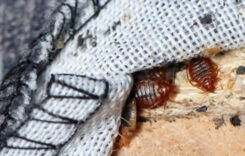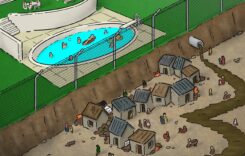
Zimbabwe is battling typhoid alongside cholera after the two waterborne diseases broke out in centres around the country.
Here is a factsheet on typhoid:
Typhoid fever is an acute illness associated with fever caused by the Salmonella enterica serotype Typhi bacteria.
It can also be caused by Salmonellaparatyphi, a related bacterium that usually causes a less severe illness. The bacteria are deposited in water or food by a human carrier and are then spread to other people in the area. Humans are the only natural host and reservoir of the bacteria. Persons with typhoid fever carry the bacteria in their bloodstream and intestinal tract.
Typhoid fever is contracted by drinking or eating the bacteria in contaminated food or water. People with acute illness can contaminate the surrounding water supply through stool, which contains a high concentration of the bacteria. Contamination of the water supply can, in turn, taint the food supply. The bacteria can survive for weeks in water or dried sewage. https://www.webmd.com/a-to-z-guides/typhoid-fever#1 Typhoid can cause intestinal perforation; intestinal bleeding; cholecystitis (perforation, empyema); osteomyelitis; and abscesses. It can be fatal if left untreated.
There have been sporadic typhoid outbreaks throughout Zimbabwe over the past several years.
Prevention of typhoid
- Typhoid can be avoided by avoiding risky foods and drinks and getting vaccinated against it.
- If you drink water, buy it bottled or bring it to a rolling boil for 1 minute before you drink it. Bottled carbonated water is safer than uncarbonated water.
- Ask for drinks without ice unless the ice is made from bottled or boiled water. Avoid popsicles and flavored ices that may have been made with contaminated water.
- Eat foods that have been thoroughly cooked and that are still hot and steaming.
- Avoid raw vegetables and fruits that cannot be peeled. Vegetables like lettuce are easily contaminated and are very hard to wash well.
- When you eat raw fruit or vegetables that can be peeled, peel them yourself. (Wash your hands with soap first.) Do not eat the peelings.
- Avoid foods and beverages from street vendors. It is difficult for food to be kept clean on the street, and many travelers get sick from food bought from street vendors. www.cds.gov/typhoid-fever/prevention.html
Treatment of typhoid
The only effective treatment for typhoid is antibiotics. The most commonly used are ciprofloxacin (for non-pregnant adults) and ceftriaxone. Other than antibiotics, it is important to rehydrate by drinking adequate water. In more severe cases, where the bowel has become perforated, surgery may be required.
Factsheet compiled by Ish Mafundikwa, freelance journalist and media consultant.
Do you want to use our content? Click Here











